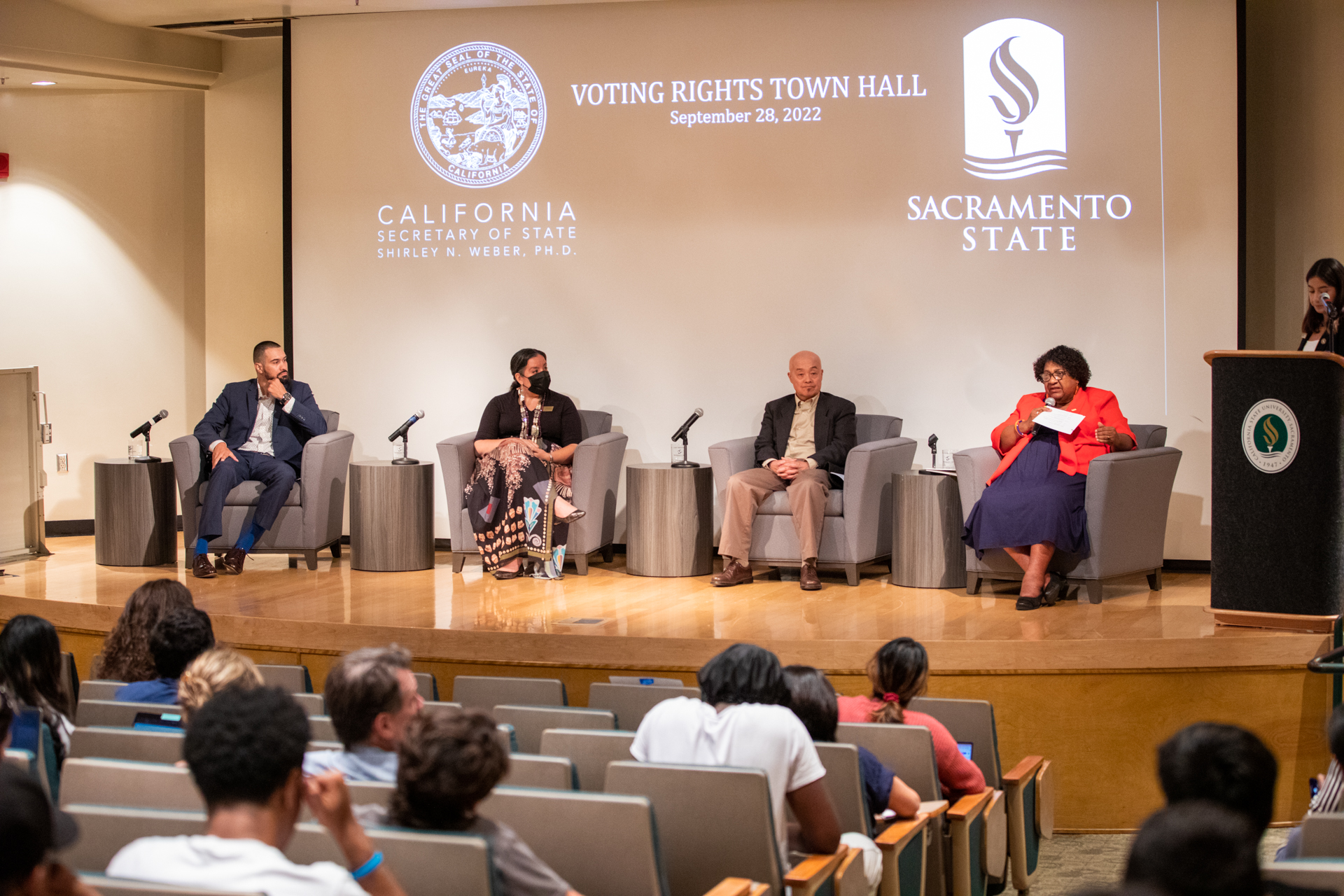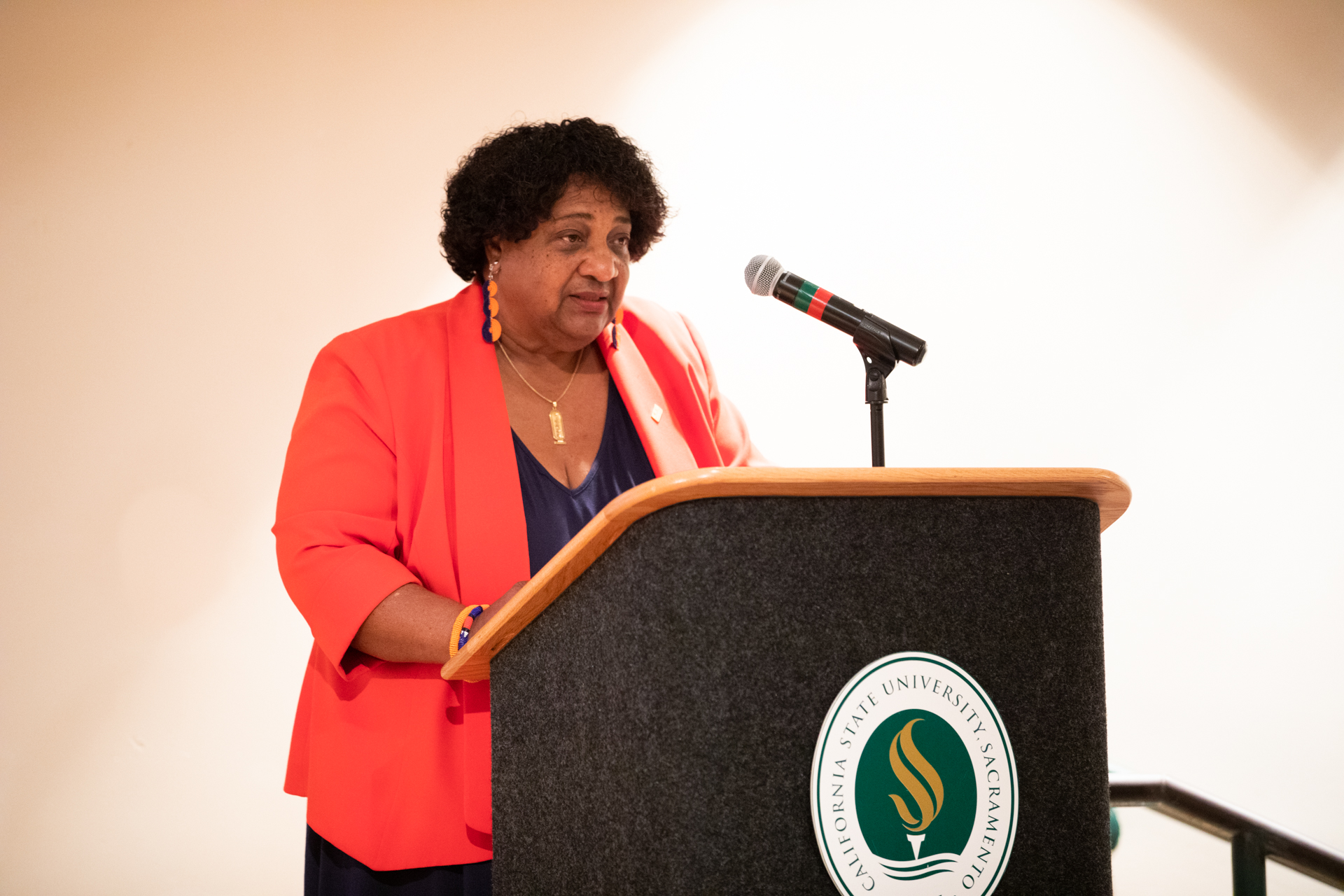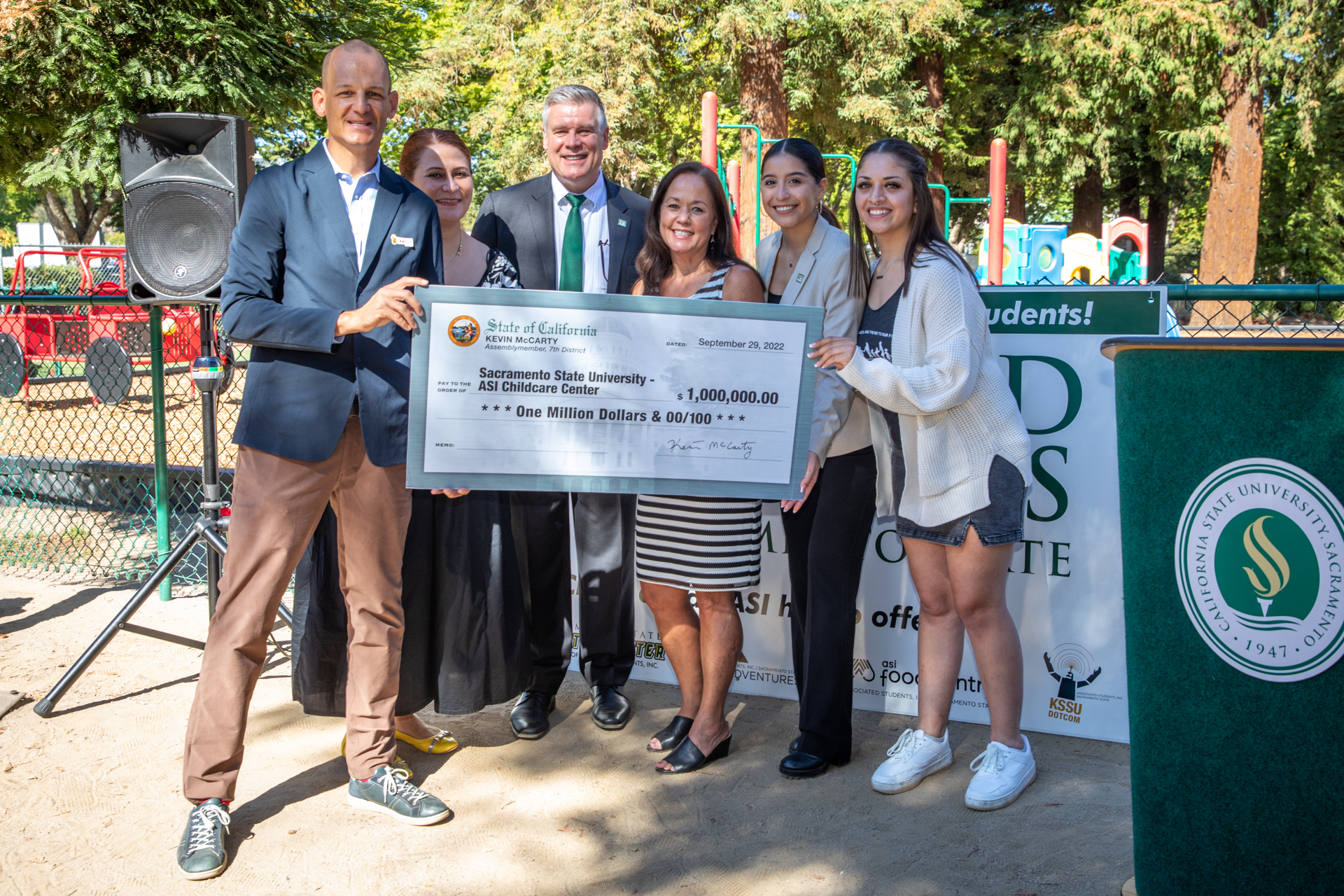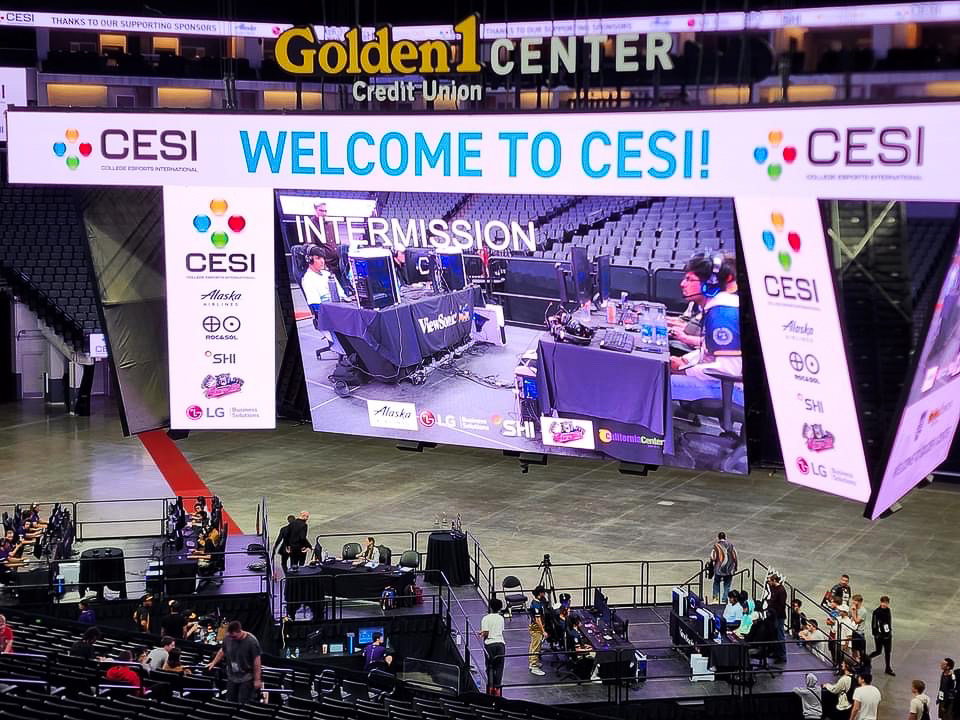Story Content
At Sac State town hall, panelists including California Secretary of State call for urgency, voter participation

September 30, 2022

With the issue of voter rights under a spotlight in the U.S., California Secretary of State Shirley N. Weber told students they need to vote – and bring along family, friends, and neighbors to the polls.
“The act of voting is a powerful act,” Weber said. “It is the only real power that you have to change the system and it’s equalizing. Everybody gets one vote.
“The expression of your opinion is powerful, and you should never give up your power.”
Weber’s comments came during a Sept. 28 town hall discussion in Hinde Auditorium that included Sacramento State Political Science and Ethnic Studies professors Christopher Towler, Rose Soza War Soldier, and Tim Fong. Members of the campus community provided questions for panel consideration.
Panelists explained how underrepresented minority groups have had to fight voting barriers, such as Jim Crow laws, long after obtaining the right to vote.
It wasn’t until 1965, when the Civil Rights movement led to the passage of the Voting Rights Act, that voter suppression laws were abolished.
The fight to protect voter rights isn’t over, though.
“Right now, we are without the Voting Rights Act,” said Weber, referring to U.S. Supreme Court rulings critics say chip away at the law’s guarantees. She said those rulings are “why (states) have passed over 300 pieces of legislation geared towards limiting people’s rights to vote.
“These new Jim Crow laws have come into effect because we don’t have the federal government to protect us.”
Weber, who is California’s first Black secretary of state, is the daughter of Arkansas sharecroppers who could not vote because of Jim Crow laws. The first thing they did when they moved to Los Angeles was register to vote.
“My father taught us to make sure you vote, because when you don’t vote, whatever you’ve acquired in life, they can take it away,” Weber said. “Your land, your dignity, your resources, your business, because you don’t have a voice in determining your future.”
Panelists warned that gains voters made since 1965 are at risk.
"(Voters) have a responsibility to not only exercise our own vote, but encourage others who have the ability to vote to do so as well.” -- Christopher Towler, associate professor of Political Science
In addition to limiting the number of ballot boxes, other tactics employed by proponents of tighter voting restrictions include gerrymandering, not allowing waiting voters to eat or drink while standing in long lines, and closing polls at noon on Sundays to prevent people from voting after church services.
“It’s a dangerous time,” said Towler, a Political Science professor. “It’s taken us 200 years-plus to get to this point where we actually look like the democracy that our founders said we should be, where we are one person, one vote, founded on the ideas that all men are created equal.
“But it can very quickly be undone, and we could very quickly get pushed back to a time when our democracy looks far more limited, as it did in the early 1900s or the times prior.”
Soza War Soldier, a Native American Studies professor, said Arizona, where Native people make up roughly 6% of the population and reservation land is almost a third of the state, was among states that passed voter identification laws establishing more stringent voting requirements.
To obtain a voter ID and register to vote, Arizona residents must provide documentation such as a water, electricity, or property tax bill, or car registration. Low-income Native Americans living in remote, rural areas don’t necessarily have the required documents.
“Because of the way land is held in trust by the federal government for Native people, they don’t hold private property on reservations, so they don’t have property taxes,” Soza War Soldier said. “So, all the qualifiers in the state of Arizona actually exclude Native people. It makes it very difficult for Native people to register to vote.”
Recently, Asian Americans have become swing voters in various areas of Texas, Georgia, Virginia, and Nevada, Fong said.
“And they are predominantly, not exclusively, Democratic, so you can actually see why some populations are targeted,” he said. “Clearly, suppression is racialized.”
Panelists told students to take advantage of the strong voting rights in California.
“We have to continue to push back and exercise our right to vote with the understanding that we may not have it,” Towler said. “If we don’t fight for it, the fight to get it back is going to be much, much harder.”
He said that voters “have a responsibility to not only exercise our own vote, but encourage others who have the ability to vote to do so as well.”
Media Resources
Faculty/Staff Resources
Looking for a Faculty Expert?
Contact University Communications
(916) 217-8366
communications@csus.edu


